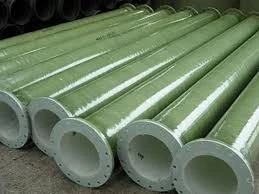
-
 Afrikaans
Afrikaans -
 Albanian
Albanian -
 Amharic
Amharic -
 Arabic
Arabic -
 Armenian
Armenian -
 Azerbaijani
Azerbaijani -
 Basque
Basque -
 Belarusian
Belarusian -
 Bengali
Bengali -
 Bosnian
Bosnian -
 Bulgarian
Bulgarian -
 Catalan
Catalan -
 Cebuano
Cebuano -
 China
China -
 China (Taiwan)
China (Taiwan) -
 Corsican
Corsican -
 Croatian
Croatian -
 Czech
Czech -
 Danish
Danish -
 Dutch
Dutch -
 English
English -
 Esperanto
Esperanto -
 Estonian
Estonian -
 Finnish
Finnish -
 French
French -
 Frisian
Frisian -
 Galician
Galician -
 Georgian
Georgian -
 German
German -
 Greek
Greek -
 Gujarati
Gujarati -
 Haitian Creole
Haitian Creole -
 hausa
hausa -
 hawaiian
hawaiian -
 Hebrew
Hebrew -
 Hindi
Hindi -
 Miao
Miao -
 Hungarian
Hungarian -
 Icelandic
Icelandic -
 igbo
igbo -
 Indonesian
Indonesian -
 irish
irish -
 Italian
Italian -
 Japanese
Japanese -
 Javanese
Javanese -
 Kannada
Kannada -
 kazakh
kazakh -
 Khmer
Khmer -
 Rwandese
Rwandese -
 Korean
Korean -
 Kurdish
Kurdish -
 Kyrgyz
Kyrgyz -
 Lao
Lao -
 Latin
Latin -
 Latvian
Latvian -
 Lithuanian
Lithuanian -
 Luxembourgish
Luxembourgish -
 Macedonian
Macedonian -
 Malgashi
Malgashi -
 Malay
Malay -
 Malayalam
Malayalam -
 Maltese
Maltese -
 Maori
Maori -
 Marathi
Marathi -
 Mongolian
Mongolian -
 Myanmar
Myanmar -
 Nepali
Nepali -
 Norwegian
Norwegian -
 Norwegian
Norwegian -
 Occitan
Occitan -
 Pashto
Pashto -
 Persian
Persian -
 Polish
Polish -
 Portuguese
Portuguese -
 Punjabi
Punjabi -
 Romanian
Romanian -
 Russian
Russian -
 Samoan
Samoan -
 Scottish Gaelic
Scottish Gaelic -
 Serbian
Serbian -
 Sesotho
Sesotho -
 Shona
Shona -
 Sindhi
Sindhi -
 Sinhala
Sinhala -
 Slovak
Slovak -
 Slovenian
Slovenian -
 Somali
Somali -
 Spanish
Spanish -
 Sundanese
Sundanese -
 Swahili
Swahili -
 Swedish
Swedish -
 Tagalog
Tagalog -
 Tajik
Tajik -
 Tamil
Tamil -
 Tatar
Tatar -
 Telugu
Telugu -
 Thai
Thai -
 Turkish
Turkish -
 Turkmen
Turkmen -
 Ukrainian
Ukrainian -
 Urdu
Urdu -
 Uighur
Uighur -
 Uzbek
Uzbek -
 Vietnamese
Vietnamese -
 Welsh
Welsh -
 Bantu
Bantu -
 Yiddish
Yiddish -
 Yoruba
Yoruba -
 Zulu
Zulu
Exploring the Benefits and Features of Fiberglass Boats and Vessels in Watercraft Design
The Advantages of Fiberglass Vessels
Fiberglass vessels have revolutionized the boating industry since their introduction in the mid-20th century. These boats, made primarily from a composite of glass fibers and resin, offer several advantages over traditional materials such as wood and metal. This article explores the benefits and applications of fiberglass vessels, showcasing why they have become a popular choice among boaters.
One of the most significant advantages of fiberglass is its lightweight nature. Unlike wooden or metal boats, fiberglass vessels are considerably lighter, which translates to better fuel efficiency and easier handling. This lighter weight means that boats can achieve higher speeds and improved maneuverability on the water, making them ideal for various activities ranging from recreational fishing to competitive racing.
Durability is another key feature of fiberglass vessels. Fiberglass is resistant to corrosion, rot, and rust, which are common issues with wooden and metal boats. This durability means that fiberglass vessels require less maintenance and have a longer lifespan, providing boat owners with greater value for their investment. Additionally, this material can withstand harsh marine environments, making it suitable for use in both fresh and saltwater conditions.
Fiberglass boats are also highly customizable. Manufacturers can modify the design and structure of fiberglass vessels to meet specific needs or preferences, allowing for a wide range of sizes and styles. This flexibility makes it possible to create everything from small dinghies to large yachts and fishing boats. The ability to mold fiberglass into complex shapes enables designers to create innovative hull designs that improve performance and stability on the water.
fiberglass vessel

Furthermore, the aesthetic appeal of fiberglass vessels cannot be overlooked. Boat builders can easily incorporate vibrant colors and finishes that enhance the vessel's appearance, attracting buyers who value design. Unlike traditional wood, which may require regular staining or painting to maintain its look, fiberglass can retain its finish for years with minimal upkeep.
Another advantage is the affordability of fiberglass manufacturing compared to other materials. The production processes for fiberglass boats have become increasingly efficient, leading to lower costs for consumers. As a result, many recreational boaters find fiberglass vessels to be a cost-effective option without compromising quality or performance.
In addition to these benefits, the eco-friendly advancements in fiberglass production are worth mentioning. Many manufacturers now use sustainable practices and materials in the production of fiberglass vessels, reducing their environmental impact. As awareness of environmental issues grows, this consideration plays a crucial role in the decision-making process for modern boat buyers.
In conclusion, fiberglass vessels represent a significant advancement in boat construction and design. Their lightweight nature, durability, customizability, aesthetic appeal, affordability, and eco-friendliness make them an attractive option for both recreational and professional boaters. As technology continues to evolve, the fiberglass boat industry is likely to see further innovations, solidifying its position as a leading choice for watercraft enthusiasts.
Latest news
-
Exploring the Benefits of Top Hammer Drifter Rods for Enhanced Drilling PerformanceNewsJun.10,2025
-
High-Precision Fiberglass Winding Machine for GRP/FRP Pipe Production – Reliable & Efficient SolutionsNewsJun.10,2025
-
FRP Pipes & Fittings for Shipbuilding - Corrosion-Resistant & LightweightNewsJun.09,2025
-
Premium FRP Flooring Solutions Durable & Slip-ResistantNewsJun.09,2025
-
Premium Fiberglass Rectangular Tanks Durable & Lightweight SolutionNewsJun.09,2025
-
Tapered Drill String Design Guide Durable Performance & UsesNewsJun.09,2025









